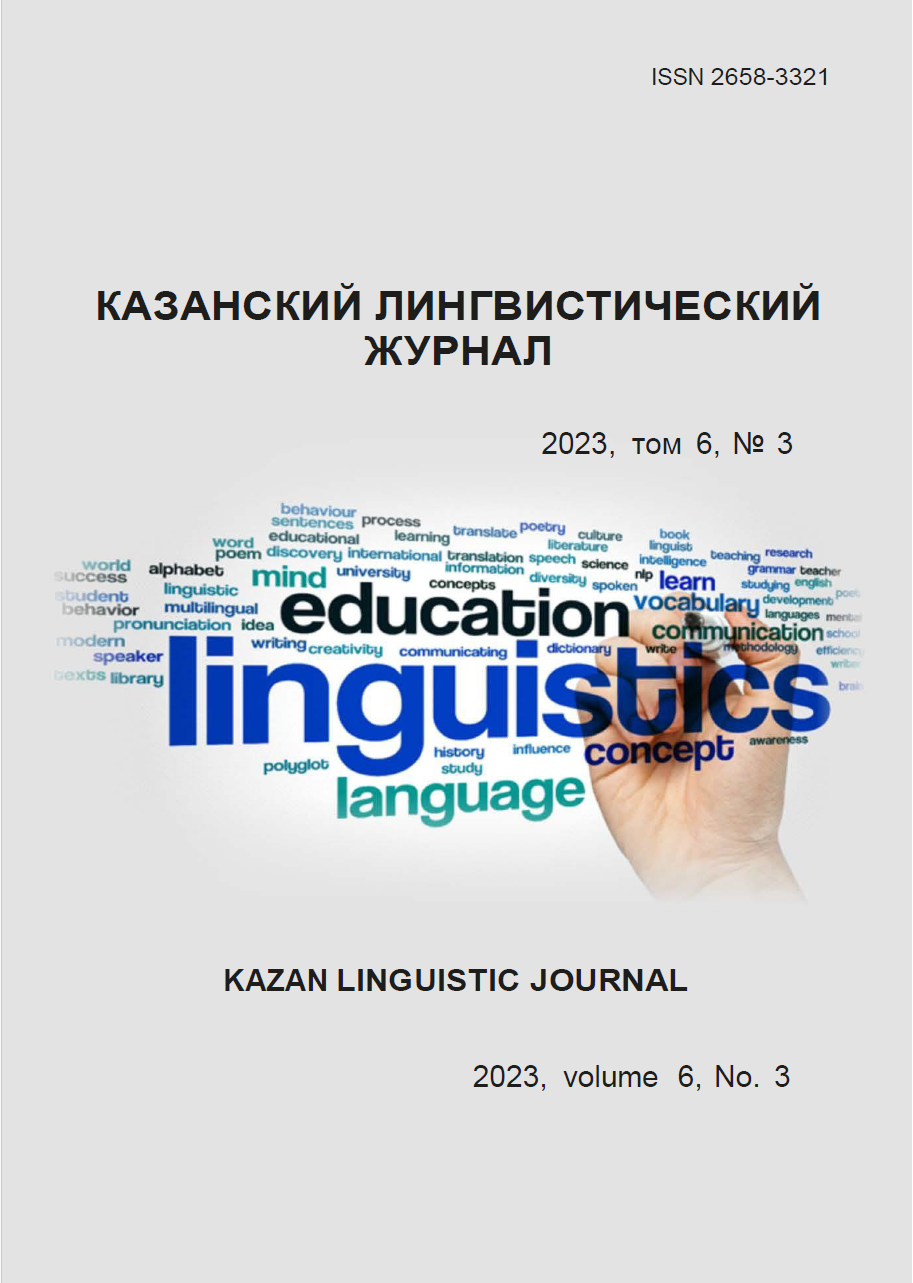Borrowings in russian cosmetic and medical advertising texts
https://doi.org/10.26907/2658-3321.2023.6.3.409–420
Keywords:
medicine, cosmetology, borrowings, advertising text, globalization, vocabulary, methods of translationAbstract
The article represents the features of the use of borrowed vocabulary in Russian-language cosmetic and medical advertising texts. Moreover, the reasons for the frequent use of Anglicisms are explained here, and the most frequently used examples of borrowings in aforementioned topics are highlighted. In particular, the article presents the presuppositions for the analysis of high-quality advertising text. On the example of borrowed lexical units, the most common ways of translating borrowed vocabulary are determined, and an analysis of the ways of translating borrowed vocabulary of a foreign language into Russian is given. As a result of the study, the reasons for the emergence and spread of borrowed vocabulary were determined. The key roles of the globalization process and the influence of this process on the course of replenishment of the Russian-language lexicon are formulated. The article paid attention to the issue of the influence of English-language borrowings on the original Russian language and an attempt to combine the positive and negative opinions of linguists and philologists on this issue into one conclusion. The article provides a sufficient number of modern examples of the use of borrowings in selected areas, most of the studied vocabulary was extracted from advertising passages of cosmetic products or medical services.
References
References
Sakaeva L.R., Takhtarova S.S., Bazarova L.V., Yakhin M.A. Logical-conceptual classifi-cation of the terminology of the sphere “medicine” in English, Russian and Turkish lan-guages. Kazan linguistic journal. 2022;5(3):360–368. https://doi.org/10.26907/2658-3321.2022.5.3.360-368. (In Russ.)
Akhmanova O.S. Dictionary of linguistic terms. Moscow: Soviet Encyclopedia; 1966. 608 p. (In Russ.)
Zirka V.V. Borrowing in advertising: fashion and informativeness. Moscow: Nauka; 2012. (In Russ.)
Abdullaeva M.Zh., Saburova Yu.T., Rakhimova Z.M. Translations of borrowed med-ical terms. Molodoj uchenyj. 2015;(8):1084–1087. (In Russ.)
Soboleva E.G., Faizulina D.R. Foreign vocabulary in advertising text: editorial as-pect. Yekaterinburg: Collection of materials of the International Scientific Conference. 2015: 66–88. (In Russ.)
Kozneva L.M., Bojko E., Grigoreva T.M. et al. Latin and Russian writing. Cyrillic – Latin – citizen: col monograph. Veliky Novgorod: NovGU im. YAroslava Mudrogo. 2009: 128–136. (In Russ.)
Gasparov B.M. Language. Memory. Image. Linguistics of linguistic existence. Mos-cow: Novoe literaturnoe obozrenie; 1996. 352 p. (In Russ.)
Maybelline New York Official Website. Available from: https://www.maybelline.com.ru/ [accessed: 03.04.2023].
Nazaikin A. Advertising text in modern media. Moscow: Eksmo; 2007. 352 p. (In Russ.)
Nivea official website. Available from: https://www.nivea.ru/ [accessed: 03.04.2023].
Sarangaeva Zh.N., Darzhinova L.V. The role of borrowings in the English language. Vestnik kalmyckogo universiteta. 2015;3(27):22–26. (In Russ.)
Inshakova N.G. Advertiser Assistant, or Editor of Advertising Texts. Moscow: MСFER; 2005. 288 p. (In Russ.)
Dibrova E.I., Kasatkin L.L., Nikolina N.A. et al. Modern Russian: Theory. Analysis of language units: Moscow: Izdatel'skij centr “Akademiya“; 2001. 544 с. (In Russ.)
Sakaeva L.R, Yahin M.A., Mensah D., Fatkullina F.G. The peculiarities of translation of official business plans from English into Russian. Opcion. 2019;3(23):433–447.






